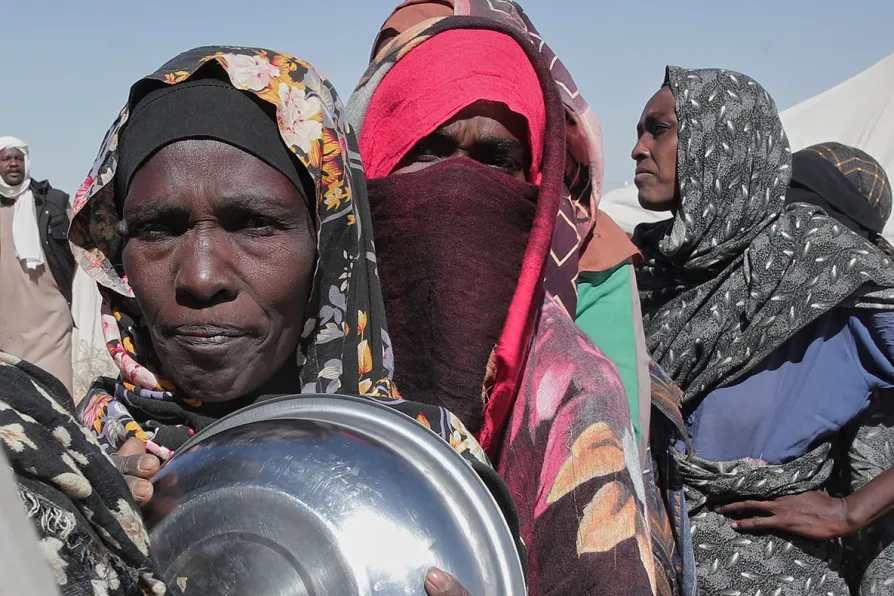
 Sudanese women displaced from El-Fasher wait in line to receive food aid at the newly established El-Afadh camp in Al Dabbah, in Sudan's Northern State, November 16, 2025
Sudanese women displaced from El-Fasher wait in line to receive food aid at the newly established El-Afadh camp in Al Dabbah, in Sudan's Northern State, November 16, 2025
THE world is facing a deepening hunger crisis, the United Nations food agency warned on Tuesday.
The World Food Programme (WFP) said funding cuts mean that more than 300 million people will face acute food insecurity next year.
In its 2026 Global Outlook report, the WFP said that about 318 million people will face acute food insecurity in 2026, which equates to “crisis” level or worse. The figure more than doubles the number from 2019.
Of those facing acute food insecurity, about 41m are estimated to be in the “emergency” phase or worse.
The WFP says that it is likely to be able to feed about 110m people next year, but that still leaves hundreds of millions of people without its assistance.
The UN agency estimates its operational requirement is around $13 billion (£9.9bn) for 2026, with most of the funds going towards crisis response and other expenses, including resilience building and addressing the root causes of food insecurity.
The WFP says current forecasts suggest it may only receive about half that amount of funds.
WFP executive director Cindy McCain said: “The world is grappling with simultaneous famines, in Gaza and parts of Sudan. This is completely unacceptable in the 21st century.
“Hunger is becoming more entrenched. We know early, effective solutions save lives, but we desperately need more support.”
Famine was declared in Gaza City and its surrounding areas in August after the Israelis imposed a total blockade on Gaza.
The Palestinians are still suffering a dire hunger crisis across the enclave as Israel continues to block supplies of food, fuel, water and medicines reaching the population.
Famine conditions were declared in Sudan’s el-Fasher and Kadugli as well as 20 other areas in Darfur and Kordofan this month.
It’s likely that famine conditions existed in these areas some time before the declaration but the fighting between the Sudanese army and the paramilitary Rapid Support Forces in these areas has hampered clear information coming out.
Afghanistan, Yemen, Syria, South Sudan, the Sahel region of east Africa, the Democratic Republic of Congo, Haiti and Nigeria are all areas spotlighted by the WFP as hotspots of concern.
While more than two-thirds of all acute food insecurity is to conflicts, the WFP also highlights the worsening climate emergency as fuelling acute food insecurity.
The United States has been the largest funder of UN programmes. But following President Donald Trump’s return to the White House earlier this year, he announced huge funding cuts for the WFP and other UN agencies.










